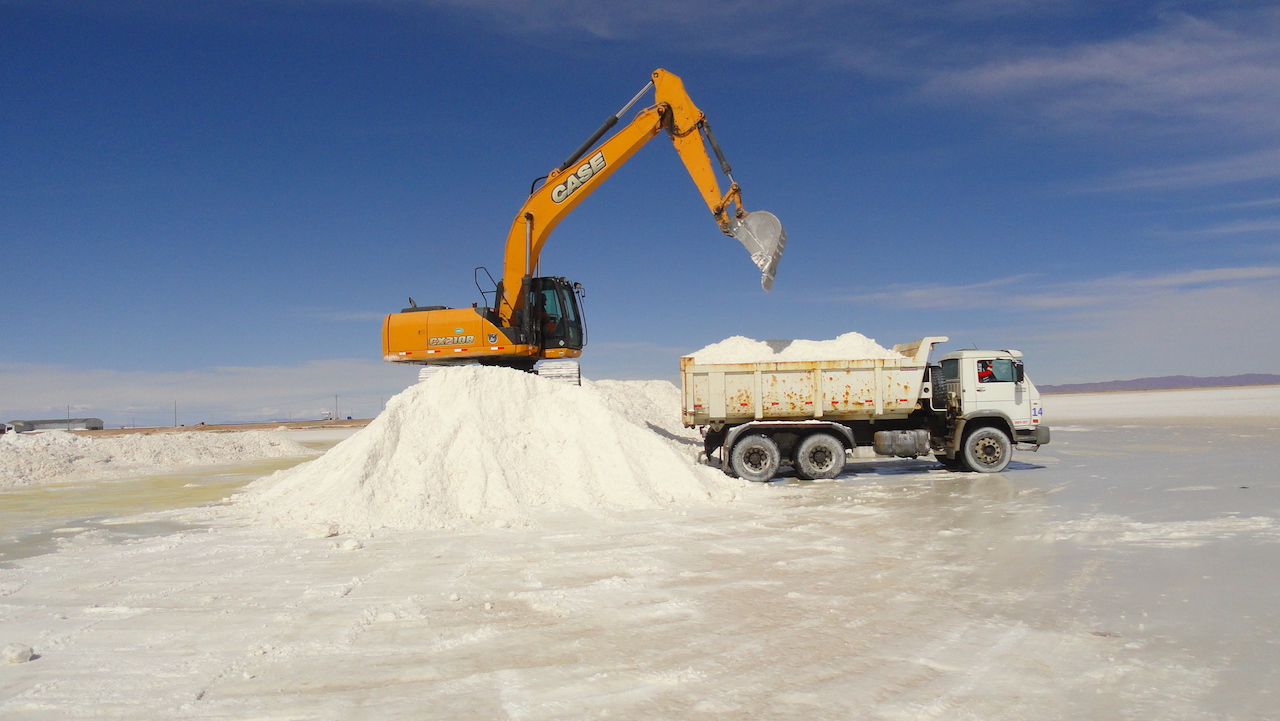On August 4, a lithium exploitation bill was discussed in Bolivia. Thanks to the so-called Bolivian “white gold”, the hope of getting out of poverty has been held back for more than 15 years.
The Potosi Civic Committee (Comcipo) organized a lithium symposium to discuss and contribute to the evaporite resources bill and royalties proposal for Potosi. This project will be presented to the government after the event held on August 3 and 4.
It was a space for analysis, discussion, and agreement of proposals that sought to bring together actors and experts to design the “National policy for the extraction, processing, and integral and sustainable industrialization of lithium and other evaporite resources in Bolivia,” Comcipo indicated.

Concerns about the environment, water, and indigenous communities that could be affected by lithium exploitation in Bolivia will also be analyzed.
Bloomberg Línea consulted Álvaro Ríos, managing partner of Gas Energy Latin America, on what Bolivia will have to do to make lithium exploitation a reality since it is an unfulfilled promise dating back to 2006, during the first government of Evo Morales.
Ríos directs studies and consultancy in energy in Latin America, focusing on the natural gas, electric power, and petrochemical chain. He was executive secretary of the Latin American Energy Organization (OLADE) between 2006 and 2007 and Bolivia’s Ministry of Hydrocarbons between 2003 and 2004.
For the expert, the main problem facing Bolivia, beyond the company chosen, is the lack of social agreement with the communities living in the salt flats where lithium is found.
“The process that the Ministry of Energy is following is a bidding process for technologies that seems prudent to me; it is reasonable to see which company is the one that offers the best technology in efficiency in the amount of recovery so as not to damage so much the salary and so on. But it must be recognized that the selection process could have been more transparent”.
However, Ríos considers that to establish a lithium development model, “first a social pact must be established, mainly with all the people of Potosí, with all the citizens, it must be established what the royalties are, what taxes are going to be paid and what benefits are going to stay in Potosí. As long as this is not clear, it is evident that the social license for the companies that come to operate is not given”.
The largest Bolivian lithium deposits are found in the Uyuni salt flat, located in the department of Potosí. Uyuni is located at an altitude of 3,670 meters above sea level and is one of the largest in the world, with an area of 10,000 km² (180 km long and 80 km wide).
Potosí is the poorest department in the country, with very poor human development indicators. That is why the local community members are demanding higher royalties for the possible exploitation of this precious metal used to produce cell phones, tablets, computers, and electric vehicle batteries. It is also used in the glass and ceramics industries.
Only 57.9% of Potosinos have a bathroom or toilet in their homes. Only 55.1% have access to improved sanitation. 17.5% of the population has no education or schooling, and only 34.9% have completed primary school.
The communities depend on the ecosystem and live from agriculture (quinoa and potatoes), livestock (camelids and sheep), and salt mining. That is combined with minimal and precarious boron and potassium extraction.
On the other hand, Uyuni’s urban population lives mainly from commerce, handicrafts, and tourism. And the main concern is that the extraction models deteriorate the environment on which they depend to attract visitors. All this generates intense social conflicts and disagreements among the population.
“All the companies in the world know that the social license is crucial because when the communities do not agree, the activity development becomes very complicated. Potosí people must open their minds to the fact that lithium is a new raw material that can give a new life to Potosí.
“The people of Potosí should not oppose its exploitation, but I believe that the government has to agree on a model with clear rules. This is what is missing, and perhaps this is what the international actors are referring to when they say that it is difficult to achieve early exploitation in Bolivia,” explains Ríos.
For Ríos, Potosí and Bolivia must urgently develop lithium since the whole world is doing it and “it is the gold of the future”.
The expert reminded that lithium exploitation does not require as much time as hydrocarbon exploitation because the material is at the surface.
“It does not take five or ten years to develop and put it on the market as if it were gas. With lithium, we only need to reach an agreement among Bolivians,” he said.
Bolivians are awaiting the results of the symposium and the national government’s reaction to the bill that will be presented in the next few days.
With information from Bloomberg

